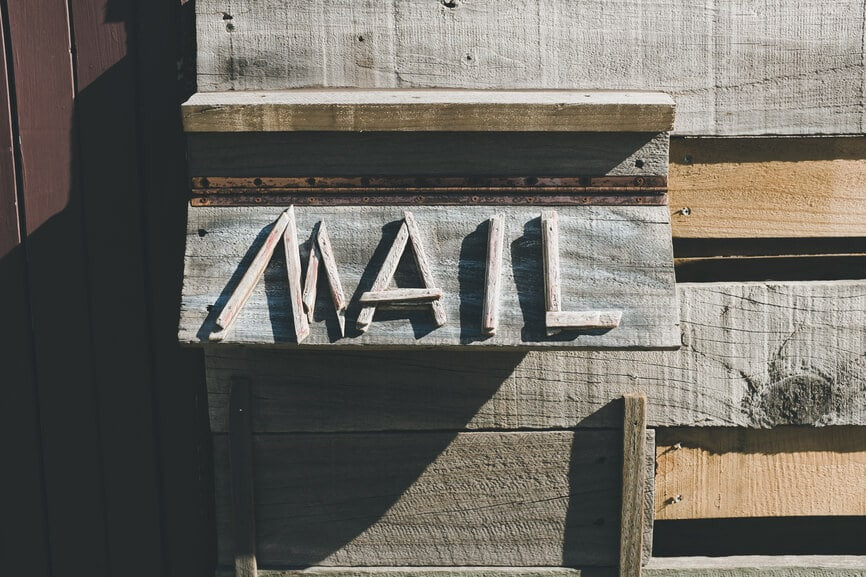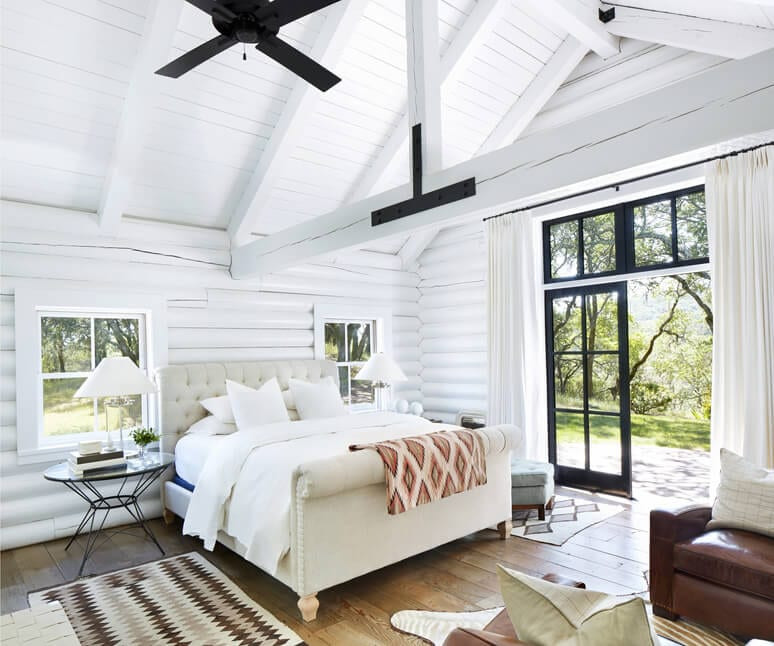Does Airbnb Count As Rental Income? Yes, generally, income earned through Airbnb is considered rental income and is subject to taxation. At income-partners.net, we help you navigate the complexities of rental income, including Airbnb earnings, so you can maximize your profits and minimize your tax burden through strategic partnerships and smart financial planning. From understanding tax implications to leveraging partnerships, we have you covered.
1. What Is Rental Income and How Does Airbnb Fit In?
Rental income is any payment you receive for the use of your property. When you rent out your property on Airbnb, the money you receive from guests is considered rental income. This income is generally taxable and needs to be reported on your tax return.
Airbnb income is taxed like any other rental income, but there are specific rules and considerations due to its short-term nature. Let’s explore the details:
- General Rule: If you rent out your property for more than 14 days a year, you must report the rental income on your tax return.
- Self-Employment Taxes: If you provide additional services like cleaning or breakfast, the IRS may consider you self-employed, which means you’ll also need to pay self-employment taxes.
- Deductions: You can deduct expenses such as cleaning fees, mortgage interest, and depreciation to lower your taxable income.
Think of Alice, a homeowner in Austin, Texas, who lists her spare room on Airbnb. She provides a clean space and a basic breakfast for her guests. The income she earns is rental income, and because she offers extra services, she might be considered self-employed by the IRS.
2. The 14-Day Rule: A Key Exception for Airbnb Hosts
What is the 14-day rule for Airbnb rentals? The 14-day rule is a significant exception that allows you to rent out your property for up to 14 days without reporting the income. This rule can save you a lot of tax hassles if you’re an occasional host.
The 14-day rule allows homeowners to rent out their property for no more than 14 days during the year and not report any rental income. This is particularly beneficial for those who only rent out their property for short periods, such as during special events.
How the 14-Day Rule Works
To qualify for the 14-day rule, you must:
- Rent your property for no more than 14 days during the tax year.
- Use the property for personal use for more than 14 days or 10% of the total days it is rented to others at a fair rental value.
If you meet these requirements, you don’t need to report the rental income on your tax return, and you can’t deduct any rental expenses.
Example
John lives near the University Station in Austin, TX. During the annual SXSW festival, he rents out his apartment for 10 days. Because he rents it out for less than 14 days, he doesn’t have to report the income or deduct any expenses.
Implications
- Simplified Taxes: Avoid the complexities of reporting rental income and deducting expenses.
- Ideal for Occasional Renters: Perfect for those who rent out their property for short durations.
 Vintage wooden mailbox
Vintage wooden mailbox
3. How Do I Handle a 1099-K Form from Airbnb?
What should I do if I receive a 1099-K form from Airbnb? If you receive a 1099-K form from Airbnb, it means that Airbnb has reported your earnings to the IRS. Even if you qualify for the 14-day rule, you might still receive this form, so it’s essential to know how to handle it.
Airbnb and other platforms send out Form 1099-K to hosts who earn over a certain amount during the year. This form reports your gross earnings from the platform. Even if your income falls under the 14-day rule and isn’t taxable, the IRS will still receive this form, so you must be prepared to explain why you didn’t report the income.
Steps to Take
- Don’t Panic: Receiving a 1099-K doesn’t automatically mean you owe taxes.
- Check Your Records: Verify the amount reported on the 1099-K with your own records.
- Report or Explain: If you meet the requirements for the 14-day rule, you’ll need to explain why you didn’t include the income on your tax return.
- Use Form 8949: If you don’t meet the 14-day rule, report the income on Schedule E of Form 1040.
Example
Sarah in Austin rented her apartment for 12 days during the year. She received a 1099-K from Airbnb. Although she qualifies for the 14-day rule, she must still report the 1099-K on her tax return, but can write that she is taking the 14-day rule.
Tips
- Keep Detailed Records: Maintain meticulous records of your rental periods and personal use days.
- Consult a Tax Professional: If you’re unsure how to handle the 1099-K, consult a tax professional.
4. What Expenses Can I Deduct as an Airbnb Host?
What are the deductible expenses for Airbnb hosts? Airbnb hosts can deduct a variety of expenses to lower their taxable income. Knowing what you can deduct is critical for maximizing your profits.
If you rent out your property for more than 14 days a year, you can deduct expenses that are ordinary and necessary for running your rental business. These expenses can significantly reduce your taxable income.
Common Deductible Expenses
- Mortgage Interest: You can deduct the portion of mortgage interest that pertains to the rental portion of your property.
- Property Taxes: Similar to mortgage interest, you can deduct the portion of property taxes related to the rental.
- Insurance: Homeowner’s insurance and any additional rental insurance are deductible.
- Utilities: Electricity, gas, water, and internet expenses can be deducted based on the portion used for the rental.
- Repairs and Maintenance: Costs for repairs, cleaning, and maintenance are deductible.
- Supplies: Expenses for items like linens, towels, and toiletries for guests are deductible.
- Depreciation: You can deduct a portion of the property’s value each year as depreciation.
Example
Maria rents out her Austin home on Airbnb for 100 days a year. She can deduct a portion of her mortgage interest, property taxes, utilities, and other expenses based on the percentage of the home used for the rental.
Tips
- Keep Detailed Records: Save all receipts and document expenses.
- Apportion Expenses: If you use the property personally, only deduct the portion related to the rental.
 Couple painting the house
Couple painting the house
5. How Do I Calculate Depreciation for My Airbnb Property?
How does depreciation work for Airbnb rentals? Depreciation is a significant deduction for Airbnb hosts. It allows you to deduct a portion of your property’s value each year, reflecting the wear and tear on the property.
Depreciation is the process of deducting the cost of an asset over its useful life. For rental properties, you can depreciate the portion of your property that is used for rental purposes.
Calculating Depreciation
- Determine the Basis: The basis is typically the purchase price of the property plus any improvements, minus the value of the land.
- Determine the Useful Life: The IRS typically considers the useful life of a residential rental property to be 27.5 years.
- Calculate Annual Depreciation: Divide the basis by the useful life to determine the annual depreciation expense.
Example
David bought a house in Austin for $300,000, with $50,000 allocated to the land. His basis for depreciation is $250,000. Dividing $250,000 by 27.5 years, his annual depreciation expense is approximately $9,090.
Tips
- Consult a Professional: Depreciation can be complex. Consult a tax professional to ensure you’re calculating it correctly.
- Keep Records: Maintain records of the property’s purchase price, improvements, and any other relevant information.
6. What Are Occupancy Taxes and How Do They Affect Airbnb Income?
What are occupancy taxes and how do they impact my Airbnb earnings? Occupancy taxes are taxes imposed by state and local governments on short-term rentals. Understanding these taxes is essential for staying compliant and avoiding penalties.
Occupancy taxes, also known as hotel taxes or transient lodging taxes, are taxes collected from renters and remitted to the local government. These taxes vary widely depending on the jurisdiction.
Understanding Occupancy Taxes
- Who Collects: In some cases, Airbnb collects and remits these taxes on your behalf. In other cases, you are responsible for collecting and remitting them.
- Tax Rates: Occupancy tax rates vary by location and can range from a few percent to over 15%.
- Compliance: Failure to collect and remit occupancy taxes can result in penalties and legal issues.
Example
In Austin, TX, occupancy taxes include a city hotel occupancy tax and a state hotel occupancy tax. Airbnb collects and remits these taxes for hosts in Austin, but it’s essential to verify this information.
Tips
- Check Local Regulations: Research the occupancy tax laws in your area.
- Verify Airbnb’s Role: Confirm whether Airbnb collects and remits occupancy taxes on your behalf.
- Keep Records: Maintain records of all occupancy taxes collected and remitted.
 couple-relaxing-in-hotel-INF29184.jpg
couple-relaxing-in-hotel-INF29184.jpg
7. Should I Pay Self-Employment Taxes on My Airbnb Income?
When do I need to pay self-employment taxes on Airbnb income? If you provide substantial services to your Airbnb guests, the IRS might consider you self-employed, which means you’ll need to pay self-employment taxes.
Self-employment taxes consist of Social Security and Medicare taxes. Employees typically have these taxes withheld from their paychecks, but if you’re self-employed, you’re responsible for paying both the employer and employee portions.
Determining Self-Employment Status
- Substantial Services: If you provide services beyond just renting out space, such as cleaning, providing breakfast, or offering tours, you might be considered self-employed.
- Business-Like Manner: If you operate your Airbnb like a business, with regular hours and significant effort, you’re more likely to be considered self-employed.
Calculating Self-Employment Taxes
- Calculate Net Earnings: Subtract your deductible expenses from your gross rental income to determine your net earnings.
- Multiply by 0.9235: Multiply your net earnings by 0.9235 to determine the amount subject to self-employment tax.
- Calculate the Tax: Multiply the result by 0.153 (15.3%) to determine the total self-employment tax.
Example
Linda runs her Airbnb in Austin like a small hotel. She provides daily cleaning, breakfast, and concierge services. Her net earnings after deductions are $20,000. Her self-employment tax is calculated as follows:
- $20,000 x 0.9235 = $18,470
- $18,470 x 0.153 = $2,825.91
Tips
- Assess Your Services: Evaluate the services you provide to determine if you’re self-employed.
- Keep Accurate Records: Maintain detailed records of your income and expenses.
8. How Does Renting Out a Single Room Affect My Taxes?
What are the tax implications of renting out a single room in my home? Renting out a single room on Airbnb has different tax implications compared to renting out your entire property. Understanding these differences can help you optimize your tax strategy.
When you rent out a single room, you can only deduct expenses related to that room. This means you’ll need to allocate expenses based on the percentage of your home that is used for rental purposes.
Allocating Expenses
- Square Footage: Determine the square footage of the room you’re renting out as a percentage of the total square footage of your home.
- Usage: Track how often the room is rented out to determine the percentage of time it’s used for rental purposes.
Example
Michael rents out a room that is 10% of the square footage of his home. He rents it out for 200 days of the year. He can deduct 10% of his mortgage interest, property taxes, and homeowner’s insurance, as well as utilities used in the room for 200 days.
Tips
- Measure Square Footage: Accurately measure the square footage of the rental room.
- Track Usage: Keep a log of how often the room is rented out.
 Modern log cabin
Modern log cabin
9. Understanding Host Service Fees and Their Deductibility
Are Airbnb host service fees tax deductible? Yes, Airbnb host service fees are tax-deductible. These fees are a direct cost of doing business, and you can deduct them from your rental income.
Airbnb charges hosts a service fee for each booking. This fee covers the cost of running the platform and providing services like customer support and marketing.
Deducting Host Service Fees
- 100% Deductible: If you rent out your property for more than 14 days a year, you can deduct 100% of the host service fees.
- Record Keeping: Keep records of the fees paid to Airbnb for each booking.
Example
Lisa paid $500 in host service fees to Airbnb during the year. She can deduct this amount from her rental income.
Tips
- Review Airbnb Statements: Review your Airbnb statements to track the amount of host service fees you paid.
- Include in Deductions: Include these fees when calculating your deductible expenses.
10. How Can Income-Partners.Net Help Me Maximize My Airbnb Income?
How can I leverage income-partners.net to enhance my Airbnb business? Income-partners.net provides valuable resources and strategies for maximizing your Airbnb income through strategic partnerships and financial planning.
At income-partners.net, we understand the challenges and opportunities of running an Airbnb business. We offer resources and strategies to help you succeed.
Our Services
- Partnership Opportunities: Connect with local businesses and service providers to enhance your guests’ experience and generate additional revenue.
- Financial Planning: Optimize your finances and minimize your tax burden with expert financial planning advice.
- Educational Resources: Access articles, guides, and webinars on topics like tax planning, property management, and marketing.
Example
Imagine you partner with a local tour company through income-partners.net. You offer your guests discounted tours, earning a commission on each booking. This partnership enhances your guests’ experience and increases your income.
Tips
- Explore Partnerships: Look for partnership opportunities that align with your Airbnb business.
- Utilize Resources: Take advantage of the resources and tools available on income-partners.net.
By leveraging these strategies and resources, you can maximize your Airbnb income, minimize your tax burden, and achieve your financial goals.
Navigating the tax implications of Airbnb income can be complex, but with the right knowledge and strategies, you can stay compliant and maximize your profits. Whether you qualify for the 14-day rule or need to deduct expenses and pay self-employment taxes, understanding the rules is essential. And remember, income-partners.net is here to help you find strategic partners and optimize your income.
Ready to take your Airbnb business to the next level? Visit income-partners.net today to explore partnership opportunities, access financial planning resources, and connect with industry experts. Let us help you maximize your income and achieve your financial goals. Contact us at 1 University Station, Austin, TX 78712, United States or call +1 (512) 471-3434.
Frequently Asked Questions (FAQ)
1. What happens if I rent out my property for exactly 14 days?
If you rent out your property for exactly 14 days, you still qualify for the 14-day rule. You don’t have to report the income, and you can’t deduct any expenses.
2. Can I deduct expenses if I rent out my property for less than 14 days?
No, if you qualify for the 14-day rule, you can’t deduct any rental expenses.
3. What if Airbnb doesn’t send me a 1099-K form?
Even if you don’t receive a 1099-K form, you’re still required to report your rental income if you rent out your property for more than 14 days.
4. How do I allocate expenses between personal and rental use?
Allocate expenses based on the percentage of your property used for rental purposes. For example, if you rent out a room that is 10% of your home, you can deduct 10% of certain expenses.
5. Can I deduct the cost of improvements to my Airbnb property?
Yes, you can deduct the cost of improvements through depreciation. Improvements are added to the property’s basis and depreciated over its useful life.
6. What is the difference between repairs and improvements?
Repairs maintain the property in good working order, while improvements add value or extend the property’s useful life. Repairs are deductible in the current year, while improvements are depreciated over time.
7. How do I handle security deposits?
Security deposits are not considered income unless you use them to cover damages or unpaid rent. If you use the security deposit for these purposes, it becomes taxable income.
8. What if I rent out my property through multiple platforms?
You must report all rental income you receive, regardless of the platform. Keep track of your earnings from each platform to ensure accurate reporting.
9. Can I deduct travel expenses to manage my Airbnb property?
Yes, you can deduct reasonable travel expenses if the primary purpose of the trip is to manage your Airbnb property.
10. Where can I find more information about Airbnb taxes?
Consult the IRS website or a tax professional for more information. Additionally, resources like income-partners.net offer valuable insights and strategies for managing your Airbnb income and taxes.
By understanding these FAQs and leveraging the resources available at income-partners.net, you can navigate the complexities of Airbnb taxes with confidence and success.